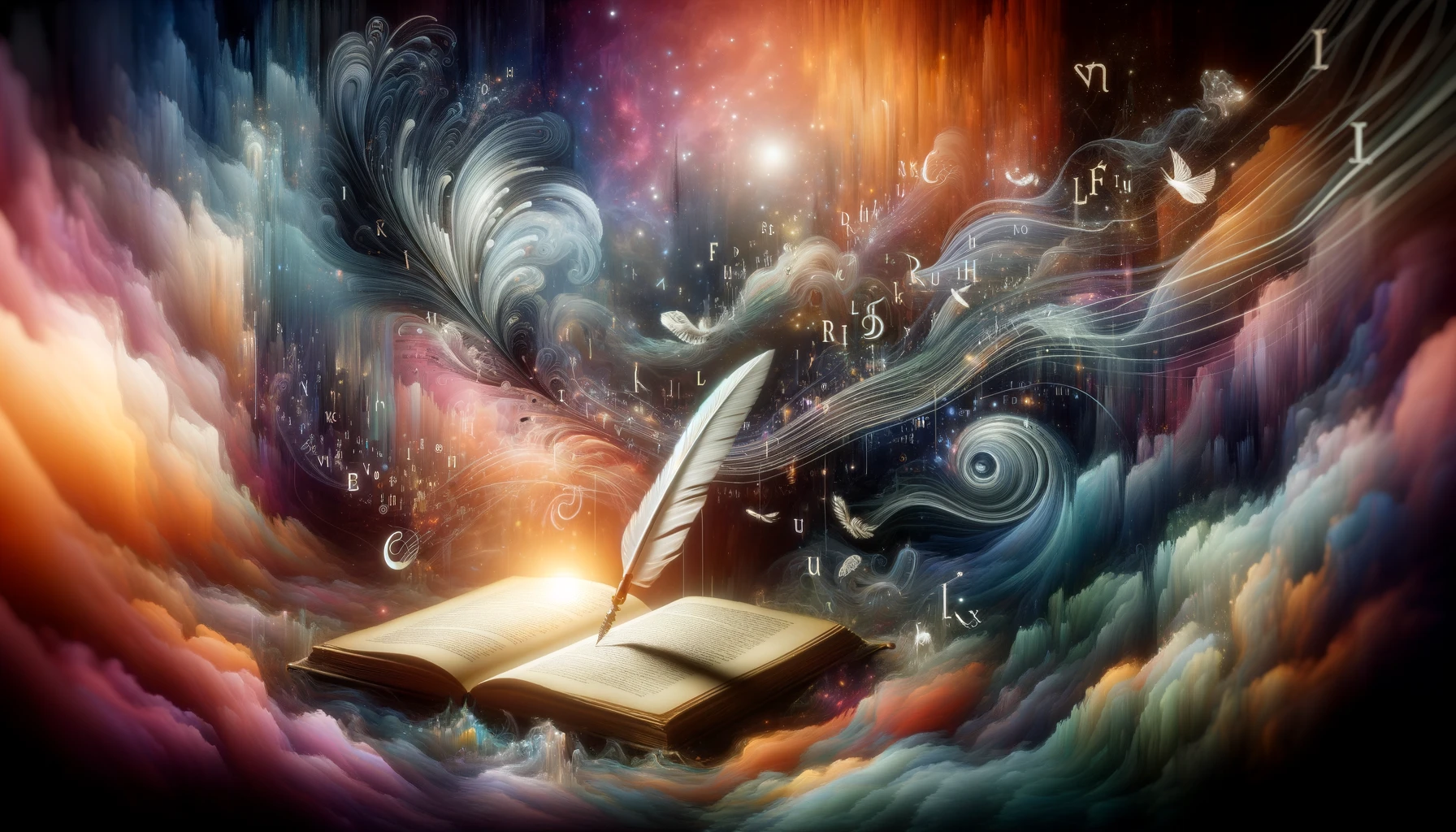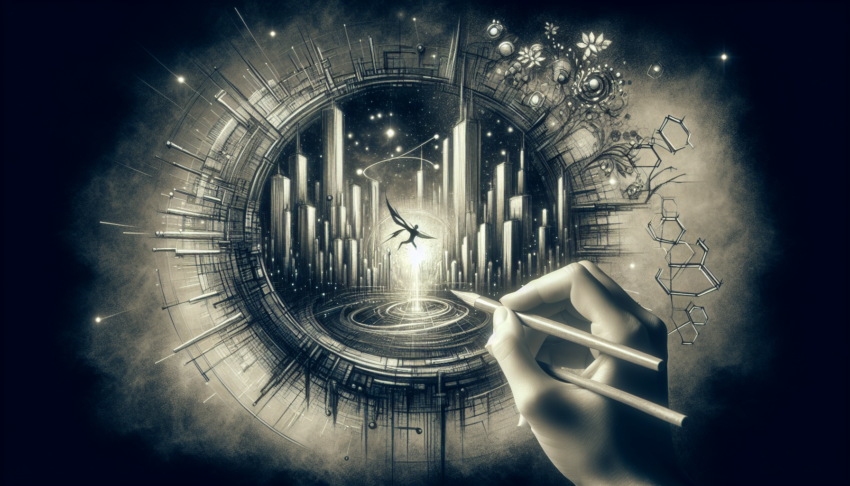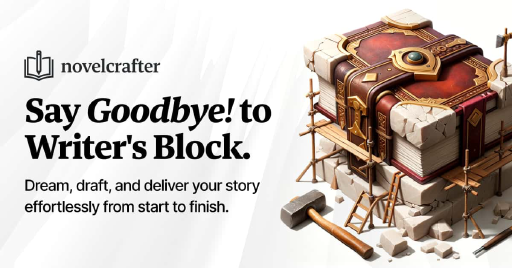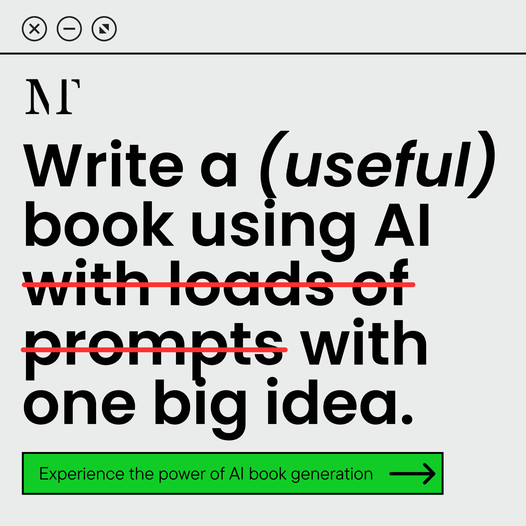Exploring AI Writing Tools
Writing sure has had its shake-up with AI jumping in. Here, we’ll unravel AI’s journey in writing and see how it’s become a sidekick for poets.
Evolution of AI in Writing
AI writing tools didn’t just pop up overnight; they’ve had quite a ride. From crunching out basic text algorithms in the 50’s to today’s AI ninjas like GPT-3, this didn’t just happen without a few eyebrow-raising ethical chit-chats. AI’s getting authors buzzing, helping them spit out drafts faster, and get those pesky editing bits sorted. AI’s really opened up a bunch of options. You can dip your toes in AI-assisted novel writing here.
| When | What Happened |
|---|---|
| 1950s | Basic text-generating algorithms hit the scene |
| 1990s | The early bird NLP tools chirp up |
| 2010s | Boom! Enter advanced models like GPT-2 |
| 2020s | GPT-3-nirvana and the magic it brings along |
AI as a Writing Muse
AI isn’t just a tool; it’s like having that wild friend who throws cool ideas your way. It’s got poets flipping their creativity scripts, acting like a muse, a sidekick, and a nitpicky editor all rolled in one. These AI bad boys are shaking poets’ worlds, letting them scribble new kinds of art with all kinds of twists—be it a cheeky haiku or a solid sonnet. Peek into how AI tools are jazzing up fiction writing here.
This tech-poetry tango’s got poets scribbling outside the box and chasing those fresh finds. AI’s like that secret ingredient writers are sprinkling over their drafts—it gets the emotional beats right without skipping on structure. Take a peek there if you want a lowdown on the gizmos making this magic here.
Impact of AI Writing Software
In the world of words, AI writing software is shaking things up, changing how folks in different professions whip up content. It’s like adding a turbo boost to both nitty-gritty tasks and creative ones. Here, we’re diving into how these slick tools are making an impression and pushing things forward.
Versatility for Various Professions
No matter your line of work, AI writing tools seem to fit like your favorite pair of shoes. Whether you’re bossing brand chatter, finessing job posts, or getting those search engines to notice you, these nifty tools make it all smoother. It’s your secret weapon in keeping everything on point across all your written works.
| Profession | Use of AI Writing Tools |
|---|---|
| Content Marketers | Make content fast, keep it true to the brand vibe (Writer.com). |
| Human Resources | Polish job postings and internal emails. |
| Authors | Spark ideas, jazz up stories, and tidy up drafts. |
| SEO Pros | Sharpen that content so it ranks higher. |
| Students | Get a leg up with grammar fixes and outlining help. |
Companies like HubSpot and Ivanti are showing others how it’s done, using AI tools to not just make things easier, but to keep users coming back because everything just works (Writer.com).
Advancements in AI Writing Tools
AI writing software isn’t just resting on its laurels. It’s got new tricks up its sleeve that really help content creators. From catching those pesky grammar gremlins to keeping your writing voice in tune, these tools are a godsend. Take Rytr, for instance—it even steps into the realm of poetry, helping poets pen their next masterpiece (PublishDrive).
The coolest thing is how these tools can be tweaked to fit just what you need. For more info, check out our guides on tools for fiction authors and AI writing tools.
As these brainy tools get smarter, they’re revolutionizing the way writers work. With bespoke options catering even to poets, like AI writing tools for poets, there’s no limit to what’s possible.
 What Poetry Feels Like
What Poetry Feels LikeAI Writing Software for Poets
Poetry’s evolution is getting a fresh twist with some smart tech entering the picture. AI writing tools are starting to play a supporting role for poets, paving new creative paths and offering some handy features that are a good fit for the poetic crowd. Let’s take a closer look at how poets can use this tech to their advantage, and see how it stacks up against novelist-centric software.
Making Your Poetry Pop
AI writing tools are like having a sidekick that never sleeps. Whether it’s providing a nudge in creative moments, acting as a sounding board, or catching typos your eyes skipped over, these tools are ahead of their time. They’ve opened new alleys for poets to mess around with styles—from free-flowing lines to traditional sonnets and snappy haikus. They bring something different to the table, like throwing ideas in the air or recreating vibes from any number of famous literary figures.
| Features of AI Writing Software for Poets | Benefits |
|---|---|
| Teaming up with AI | Sparks new ideas and unique styles |
| Fixing and refining | Helps sharpen text and catch slip-ups |
| Style emulation | Lets poets dive into diverse poetic formats |
Research even highlights how AI’s touch can sometimes bring out themes and imagery that’s more gripping than human-made work. It’s a nifty trick for catching the attention of folks who aren’t about dissecting every metaphor but still enjoy a good poem-read (The Guardian).
Novelist-Focused Tools
Though AI tools for poets have their charm, novelist-oriented software packs an equally impressive punch with storytelling features. More than just a writing pad, these apps come loaded with goodies like plot outlining, universe crafting, and character arcs.
| Features of Writing Software for Novelists | Benefits |
|---|---|
| In-depth story-building | Assists with organizing epic tales |
| Character shaping | Aids in forging complex personalities |
| Co-authoring options | Facilitates teamwork on writing projects |
Both poet and novelist tools provide brainstorming and editing help, albeit in different flavors. For poets, mixing human creativity with AI’s analytical brainpower creates a balance that retains genuine flair while experimenting with cutting-edge support. Platforms like novelcrafter writing software allow poets to collaborate in ways that amplify rather than stifle their voice.
Interested in what AI writing tools can offer? Dive in with options like ai-assisted writing platforms and writing software with AI integration to see how they can mix classic poetry with modern tech, making any writing venture a bit more exciting.
Ethics and AI in Writing
As AI keeps getting smarter, folks are chewing over the right and wrong of using these gizmos in writing. These digital scribes are throwing open doors for poets and authors, but they’re also flinging a fair share of tricky questions at us.
Academic Use of AI
In schools, toying around with AI writing software needs a careful touch. Turning in a bunch of words spat out by a machine and calling it your own is a no-no. Teachers care about students really getting into their work, developing their thoughts and arguments, and not just leaning on AI machines (Center for Teaching Excellence, University of Kansas).
Yet, if you play by the rules, AI can lend a hand in writing, showing students fresh ways to jazz up their writing game. It’s a sidekick, not the star of the show. Using AI smartly lets students work it into their writing flow responsibly.
| Academic Points | What’s the deal? |
|---|---|
| Ownership | Students gotta own up to what the AI spits out. |
| Engagement | AI shouldn’t step in for your personal brainwork. |
| Authenticity | Passing off raw AI work as yours messes with academic honesty. |
Balancing Human Creativity and Technology
The trick is juggling AI’s magic while keeping human creativity in the spotlight. Teachers and writers need to figure out both the good stuff and the limits of AI. Sure, AI can toss out ideas and polish text, but it’s just not got the human touch, the flair real writers bring.
Teachers guide students through these waters. They should get students thinking critically about AI’s work and nudging them to make sure their personal touch keeps the quality and creativity alive (Center for Teaching Excellence, University of Kansas).
Writing tools like novelcrafter writing software come packed with goodies for poets and authors, but each writer needs to let their own voice and perspective take the mic. Getting students to team up with AI means they’re honing their craft, not replacing it.
| Balance Points | What’s it all about? |
|---|---|
| Creativity | Writers stay in the driver’s seat, creating their stuff. |
| Instruction | Teachers should steer students in wise AI usage. |
| Collaboration | Writers can brainstorm with AI but need to add their flavor. |
By digging into the ethical angles of AI in writing, both teachers and writers can roll out a responsible tech embrace while holding up the banner for the art of writing. Check out how to weave AI into your scribbles with ai writing assistant for authors or best tools for fiction authors.
AI Poetry: Authenticity and Perception
Folks have been chatting up a storm about AI poetry and what it means for the more traditional stuff. Can machine-made poems hang with the human kind?
Readers’ Perception of AI Poetry
Turns out, people often can’t tell the difference between a poem spat out by a machine and one penned by your friendly neighborhood poet. The Guardian’s got the scoop that people think AI poems are usually more straight-up and easy to get. Regular folks only get it right 75% of the time when sussing out if a human or a computer wrote a poem. And here’s the kicker: they often put AI poems above the human ones in terms of quality. Seems like those AI creations tick boxes for emotion and themes without frying your brain cells thinking too deep about it.
Seth Perlow, writing for The Washington Post, says there’s a crowd out there that’s cool with AI poetry being just as good as the human stuff. Looks like people are warming up to bots dabbling in verse.
Challenges and Controversies
But hey, it ain’t all smooth sailing. Some people are not so sure about poetry coming out of a computer. If it doesn’t have a heartbeat behind it, can it really hit home? Critics say AI poetry might lack the soul that makes poems stick with you.
Then there’s the worry that a rush of AI poems could muddy the waters for human poets. Can a string of zeroes and ones really hold the same weight as words that a body and soul poured into? The push for tradition runs deep for some poets and fans.
This back-and-forth over AI poems ties into a bigger conversation about gadgets and gizmos in the art world. As writers test out tools like AI writing software, it’s important to stay sharp about what your tech is pumping out and how it stacks up against human creativity.
As tech gets fancier, there’ll be work for everyone to do—writers, readers, and machines, too. It’s all about finding that sweet spot where the human touch and AI magic come together, making sure what’s churned out is both innovative and true to the art.
AI in the Creative Process
AI is shaking up how creativity works, opening the door for authors to try new things with their writing. The mix of AI and human skills could really change how we write for the better.
Collaborative Possibilities
AI writing software gives authors a fresh way to work with technology. It’s like mixing human imagination with AI’s knack for analyzing. With tools like novelcrafter writing software, writers can get instant feedback, come up with new ideas, and polish their prose.
Here’s how this tag team effort can play out:
- Idea Generation: Authors feed AI themes or prompts, and AI bounces back plot ideas, character traits, and even conflicts to spark creativity.
- Editing and Revising: AI spots grammar goofs and clunky sentences, even tossing in suggestions to smooth things out.
- Story Structuring: Software helps map out outlines and story flow, making it easier to keep everything connected in longer pieces.
AI is all about boosting the writer’s own voice rather than taking it over. Like when Emily mixed AI-created abstract patterns with her own art, it proved tech can pump up creativity NYU School of Professional Studies.
Balancing Human and Technological Contributions
While AI can really help with writing, writers should keep a good mix of human touch and tech help. The best stuff comes when human insight and feelings mix with what AI can do.
Think about these pieces when balancing both sides:
| Factor | Human Contribution | AI Contribution |
|---|---|---|
| Creativity | Original ideas, emotional depth | Idea prompts, thematic suggestions |
| Editing | Personal style checks, context understanding | Grammar checks, structural improvements |
| Story Development | Character backstories, plot nuances | Story arcs, pacing recommendations |
Understanding these dynamics lets authors tap into the power of AI writing software for poets, upping their creative game without losing their unique voice. Trying out writing software can lead to new ways of storytelling, showing how tech and human creativity can groove together.
Teaming up with AI not only backs up writers in their work but also changes the writing scene, setting the stage for new storytelling styles.


 Grab my poetry book, 'we're all just wanderers in the end' Here
Grab my poetry book, 'we're all just wanderers in the end' Here AD: Your Book Finally Written...
AD: Your Book Finally Written...